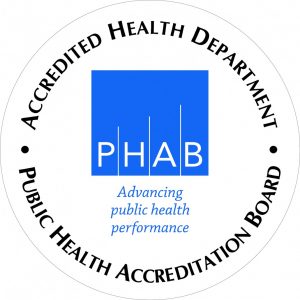On Thursday, July 21, the Marion Board of Health unanimously approved the agency’s 2016-2020 Strategic Plan. The plan was built upon a foundation that included the 2015 Marion Community Health Assessment (CHA), the 2016-2020 Marion Community Health Improvement Plan (CHIP), the Ohio Department of Health’s State Health Improvement Plan (SHIP), Healthy People 2020, the national plan, as well as input from the health department’s staff and board. Unlike the Community Health Improvement Plan that was developed by the community and will depend on community partners for its implementation, this plan is an internal health department plan. It is intended to support that community health improvement plan. It is very much aligned with it. However, there are elements of our internal strategic plan that also address other internal priorities and public health obligations as defined in Ohio Revised Code.
The plan focuses on eight priority areas.
- Quality Assurance
- Health Equity and Social Determinants of Health
- Chronic Disease Prevention
- Environmental Risk Reduction
- Communicable Disease
- Health Care Access
- Injury Prevention
- Emergency Preparedness
There are 18 goals that address these eight priorities.
- To serve the public in a way that demonstrates our respect for them as well as our respect for ourselves as public health professionals
- To reduce institutional, cultural, environmental, and societal barriers to the achievement of optimal health for all who call Marion home
- To reduce barriers to health associated with disability status
- To reduce barriers to health associated with unhealthy housing conditions
- To increase the proportion of Marion residents who follow US Dietary Guidelines
- To increase the proportion of Marion residents who follow the Physical Activity Guidelines for Americans
- To decrease tobacco use rates
- To reduce environmental risks associated with foodborne disease transmission
- To reduce environmental risks associated with waterborne disease transmission
- To reduce environmental risks associated with vectorborne disease transmission
- To engage in the timely data collection, investigation, and reporting of all communicable diseases
- To reduce the risks associated with bloodborne disease transmission
- To increase access for people in need of health care services
- To increase the practice of safe sleeping for infants
- To decrease the risk of accidental injury associated with firearms
- To capitalize on other opportunities to engage in injury prevention where appropriate
- To maintain current emergency response plans sufficient to respond to anticipated public health emergencies
- To maintain workforce familiarity with the current emergency preparedness plans sufficient to implement them in necessary
Each of these goals as one or more objectives, benchmarks, to track progress toward these goals over the next five years. The senior leadership team will provide reports to the Board of Health regarding progress on the Strategic Plan.
The plan also identifies five initiatives that don’t have specific timelines or objectives. These are ongoing, developing ideas, that the division directors will be working on with their teams.
The staff that currently provide WIC services will explore the feasibility of expanding their reach with regard to outpatient lactation services with the non WIC eligible population. That same team will explore the feasibility of expanding their scope (and funding streams) to more broadly address maternal and child health issues, including physical activity and injury prevention. The environmental health team will explore the feasibility of leveraging their impact by becoming a center of training for environmental health services. The public health nursing team will explore the feasibility of reinvesting resources from redundant immunization clinic activities toward increasing appropriate access to care for the residents of Marion. The Office of Policy and Planning will explore the feasibility of increasing professional public health capacity by utilizing recent graduates of Masters of Public Health programs for short term projects similar to post-doctoral fellowships. This will provide professional opportunities for the graduates seeking full-time employment and provide our local public health system with increased public health expertise.

